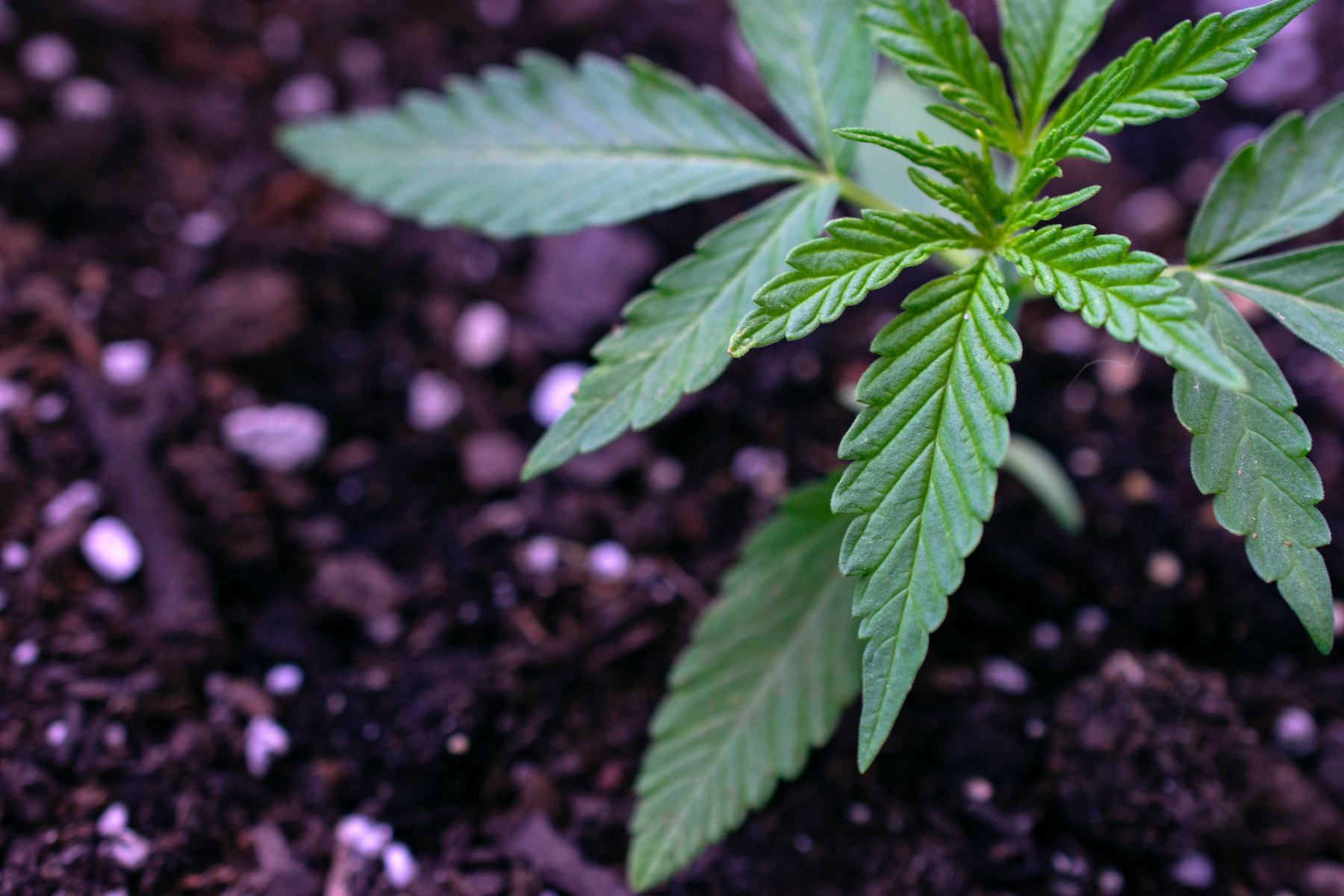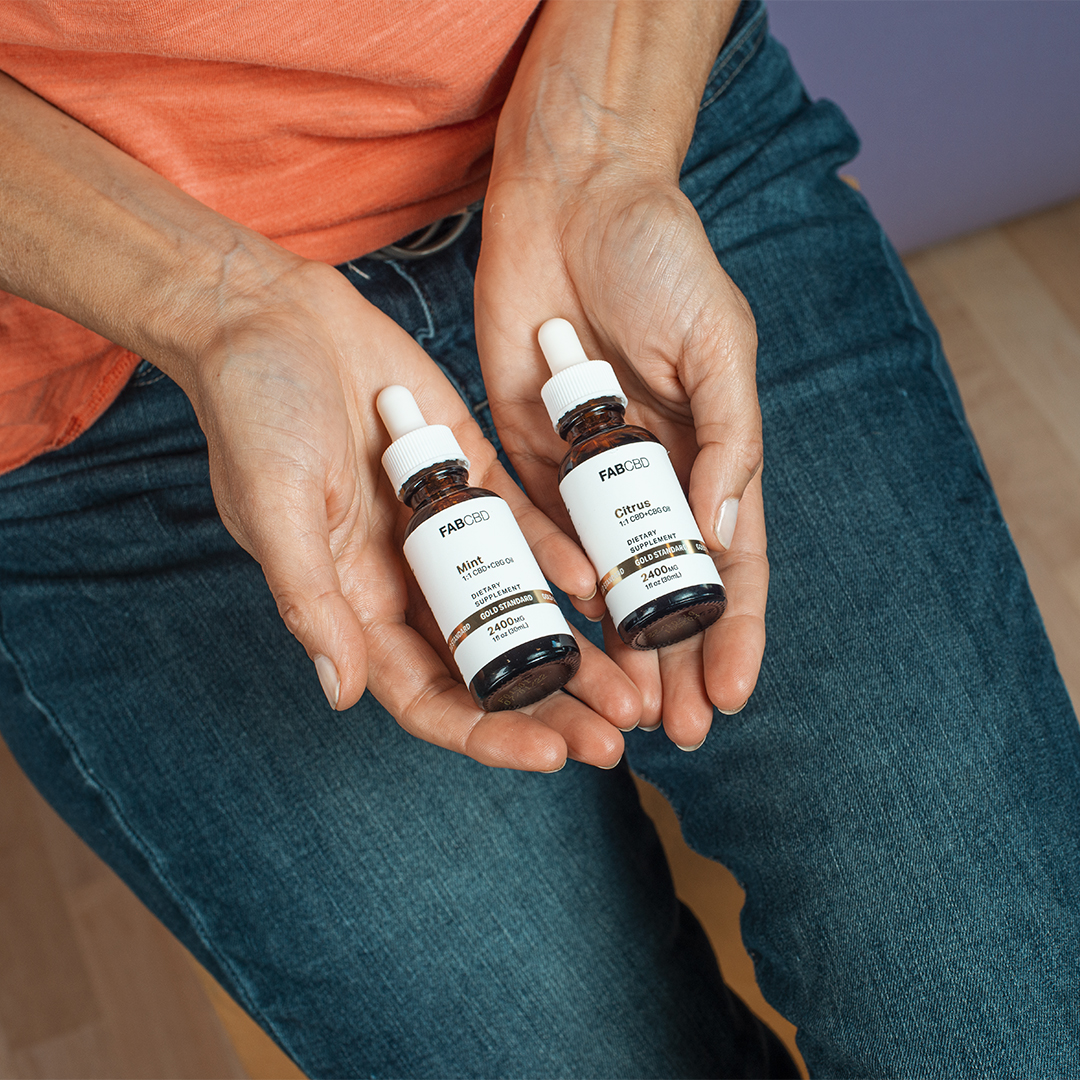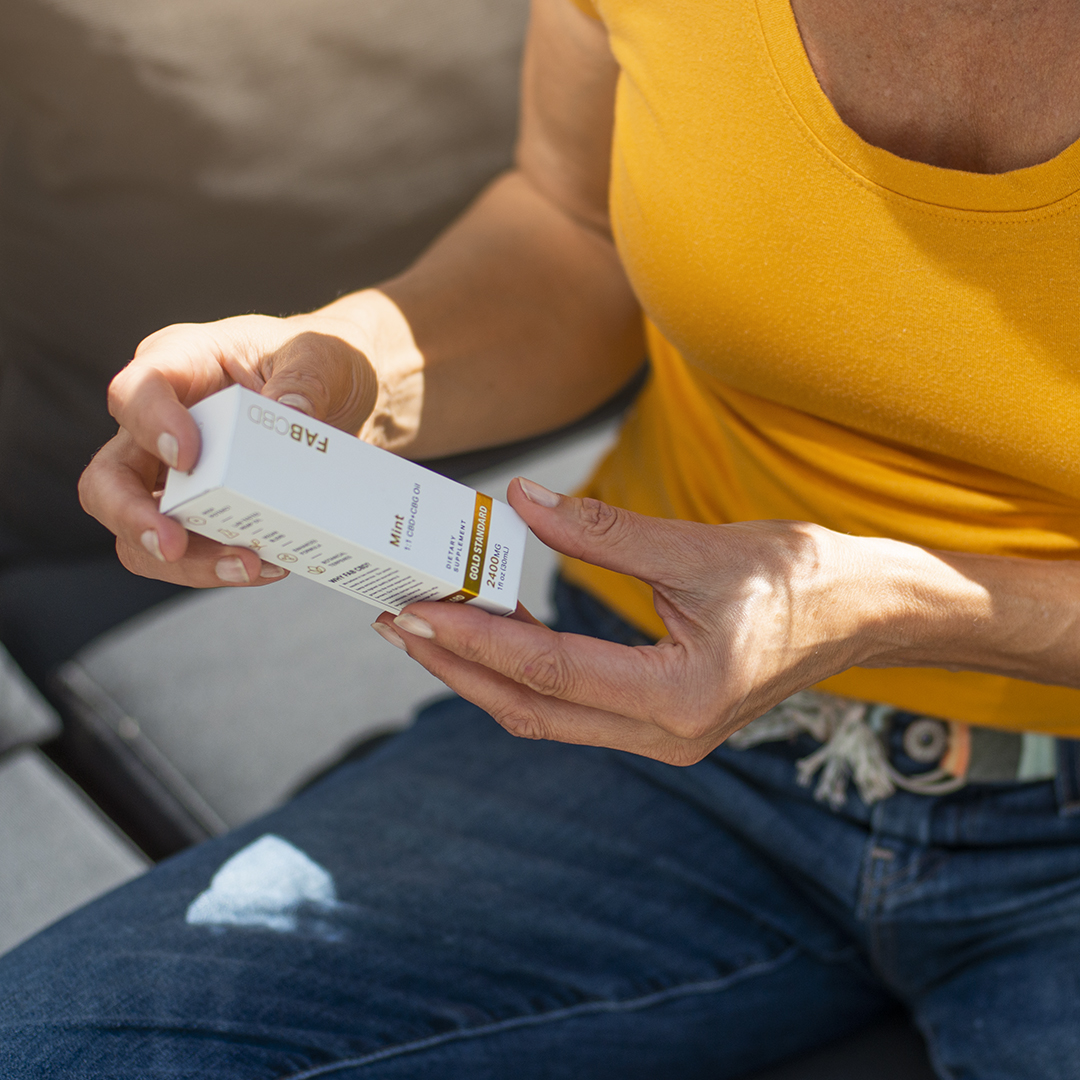Lately, top-quality CBD products have been in great demand, and thanks to an influx of people seeking out natural remedies, it doesn’t look like this trend will slow down anytime soon. While prescription medications are sometimes necessary, they can come with a host of dangerous and unwanted side effects. Natural alternatives like CBD offer a more gentle way for people to alleviate the symptoms that stem from tough health conditions like chronic pain, anxiety, depression, and insomnia.
Since CBD has become commonplace among many faithful users, industry experts are seeking to push the envelope by exploring some of the other beneficial cannabinoids that are packed into the hemp and marijuana plants. Recently, CBD, or cannabigerol, has entered into the spotlight as a cannabinoid that has exciting benefits on its own or when paired together with CBD. In fact, CBD and CBG are alike in that they both share similar compositions, and each offers profound health benefits. Our brief guide will give you a look into both CBD and CBG as well as explain their benefits when taken together.

What is Cannabigerol?
Cannabigerol, or CBG, is one of the over 100 cannabinoids in the cannabis plant. Even though it was first isolated in 1964, studies on it didn’t begin until just a few years ago. While research on CBG is still in its early stages, the good news is that everything scientists are finding out about the cannabinoid is promising. In fact, there is evidence to support the fact that CBG has antibacterial, antidepressant, and anticancer properties. What’s exciting is that CBG can provide many of the same benefits as THC, or tetrahydrocannabinol, but without causing users to feel that familiar “high” sensation.
CBG is considered the “Mother of Cannabinoids” because, in its acidic form of CBGA, it’s the precursor to most all cannabinoids. When the hemp plant grows, CBGA branches off into the three primary cannabinoids of CBDA, or cannabidiolic acid, CBCA, or cannabichromene acid, and THCA, or tetrahydrocannabinol acid. Only in the chemical process of decarboxylation does CBGA become CBG, CBDA become CBD, CBCA become CBC, and THCA become THC. When CBG is taken into the body, it interacts with the brain’s cannabinoid receptors — in particular, the CB1 and CB2 receptors. Interestingly, CBG may also stimulate the receptors for pain, inflammation, and heat sensitivity.
What is Cannabidiol?
CBD is one of the main and most commonly known cannabinoids in the cannabis plant. Years of positive scientific research have caused CBD to grow in popularity because of its documented therapeutic benefits. Researchers discovered that CBD has anti-inflammatory, anti-nausea, anti-anxiety, analgesic, and sedative properties. Thanks to the entourage effect, CBD can help dampen THC’s negative side effects while boosting its positive ones. Some of the documented negative effects caused by high levels of THC include paranoia, impaired cognitive function, nausea, and anxiety.
Research also demonstrates that when CBD is combined with THC, CBG, and other cannabinoids, that it can offer more therapeutic benefits overall. CBD acts on the body’s natural endocannabinoid system, which is responsible for regulating various body systems and processes, by binding to the brain’s CB1 and CB2 receptors.
How are CBD and CBG Different?
While there are many great similarities between CBD and CBG, they also have some notable differences. Some of the main differences between the two cannabinoids are:
- Structure: CBD and CBG have varying molecular structures. This means that the way their carbon, oxygen, and hydrogen atoms are arranged is different. What this translates to is that because the molecular structures are different, CBD and CBG will be able to bind with the brain’s endocannabinoid receptors in unique ways. This allows them to have different effects within the body.
- Bodily Effects: CBD and CBG activate receptors in different ways. For example, CBD has anti-nausea effects and binds to receptors as an activator, while CBG acts as a blocker or antagonist. Interestingly, when the two cannabinoids bind to the same place, they have opposing effects on each other, thus balancing one another out.
- Appetite Stimulant: Scientific studies showed that CBG encouraged animal subjects to eat double the amount of their food while another study reported that CBD caused an overall reduction in appetite.

Do CBD and CBG Mix Well Together?
It’s definitely worth purchasing a product that contains both CBD and CBG blended together. There’s a wealth of studies out there that testify to the fact that taking one cannabinoid in isolation has benefits, however, combining many cannabinoids together has the potential to offer many more. In fact, taking a full-spectrum combination CBD/CBG oil, like FAB CBD’s CBD+CBG Oil, causes those benefits to multiply exponentially, This is all due to the entourage effect, which causes cannabinoids to work better together than individually.
When CBD and CBG are taken together, they balance each other out. CBG works directly on the receptors while CBD stimulates the enzyme that produces the body’s natural endocannabinoids. Interestingly, when taken alone, people have reported that CBG causes them to feel drowsy, while CBD alone makes them feel energized. Therefore, it makes sense that, when taken in combination, CBD and CBG balance each other out. The process for taking CBD+CBG oil is very much the same as when taking CBD oil: It’s best to start low and go slow, stay on the same dose for about a week before increasing, regularly check in with your body during the process, take the oil consistently at the same time each day, and most importantly, be patient. Furthermore, there isn’t one set dose that works best for everyone. Since everybody’s body is different, a dose that works for one person might not be that effective for someone else.
To date, scientists found that CBD works better on physical issues in the body, while CBG is better suited against psychological issues. For example, even though CBG and CBD both have a positive impact on pain and sadness, CBD works best against pain while CBG acts better against sadness. Since everyone’s body is different, this statement could be applicable in an opposite way for some people.
Therapeutic Benefits of CBD and CBG
Studies on CBD and CBG’s effects on the human body are still in their early stages. However, there are still a good number of studies out there that provide proof of the benefits that the combination of these two cannabinoids provide. While it’s commonly known that THC causes psychoactive effects when taken in large amounts and elevated strengths, both CBD and CBG will not create such an effect.
Some of the therapeutic benefits of CBD and CBG include:
- Pain Reduction: Most of the more commonly known cannabinoids offer an analgesic, or pain-relieving, effect. This is one of the many reasons why full-spectrum CBD oils, like the ones created at FAB CBD, are popular with people who suffer from chronic or acute pain. A blend of CBD and CBG can be an even stronger way to help manage pain. Additionally, because CBD+CBG brings an even stronger entourage effect to the body, this combination might also help to boost mood while tackling tough pain.
- Battling Bacterial Infections: As stated earlier, studies show that CBD and CBG have the ability to fight off harmful bacterial infections. When researchers pitted CBD, THC, and CBG against MRSA, the CBG acted in a very similar way to vancomycin, an extremely strong antibiotic. Therefore, when combined with CBD, these results will most likely improve.
- Anti-Epileptic: Both CBD and CBG have antispasmodic properties, which means that they can both help to alleviate or eliminate seizures stemming from epilepsy.
- Mood Booster: When taken alone, CBG tells the body to stop absorbing serotonin, which leads to an improvement in mood. Conversely, CBD increases anandamide levels in the brain which prevents enzymes from breaking down anandamide. Low anandamide levels are linked to symptoms of depression. The combination of CBD’s interaction and CBG’s ability to improve mood translates to a better mood overall. CBD and CBG may also have the ability to improve Seasonal Affective Disorder, or SAD, bipolar disorder, and manic syndrome, depression, and anxiety.
- Anticancer Properties: Scientists discovered that CBD and CBG have the ability to prevent the abnormal cell growth and multiplication that happens in cancer. While more research is needed, the results of these existing studies are promising.

How to Look for a Reputable CBD+CBG Brand
If you want to experience the best benefits from a CBD+CBG oil through the strongest possible entourage effect, then research is needed to find the most reputable brand in today’s market. Since the cannabinoid ratios of CBD and CBG blends can differ between brands, it’s important to take the necessary time to research both the brand as well as the ingredients that go into its products. When you purchase oil that’s clean, potent, effective, and free from harmful herbicides, pesticides, and dangerous chemicals, the chances of you receiving your desired result from a CBD+CBG oil will be strong.
In searching for reputable brands, you should take into consideration:
- Hemp source
- Independent third-party lab testing
- How long the brand has been in the industry
- CBD/CBG oil ingredients
- Verified Customer reviews
- Published articles from reputable CBD journalists
- Lab reports published and easy for the customers to find
- The effectiveness of the CBD/CBG oil
- Product quality
- Brand reputation
- Product price
Final Thoughts: Are CBD/CBG Blends Good?
Even though full-spectrum CBD oils are a fantastic way to get a wealth of beneficial terpenes, phytonutrients, and cannabinoids into your system, a blend of CBD and CBG together has an even better chance of evoking a strong entourage effect. The CBD industry is buzzing about CBG oil, and so far the research that there is on the cannabinoid is both positive and exciting. Before taking any type of CBD oil, you most likely took the time to do the research into what CBD was, what its benefits were, and how it could best help your health needs. The same needs to be done before purchasing any CBG oils.
Be wary of cheaply priced products from little known brands, as these CBG oils can potentially be laden with dangerous pesticides, herbicides, and other harmful chemicals. Reputable brands like FAB CBD cared enough about its customers to take the necessary time it needed to create its potent and well-reviewed CBD+CBG Oil. When brands focus on transparency, crafting products from clean, organic sources, and making sure that customers are happy and satisfied, they gain a positive reputation among customers and industry experts alike.
Finally, if you’ve been wanting to try CBG oil and have not used any other CBD products before and have questions or concerns, never hesitate to reach out to your primary care doctor or prescribing physician. These medical professionals can also answer any questions you may have about CBG’s interaction with your current prescription medication. They can also enlighten you as to what CBG’s benefits and possible side effects are and how they apply to your body’s unique chemical make up.

